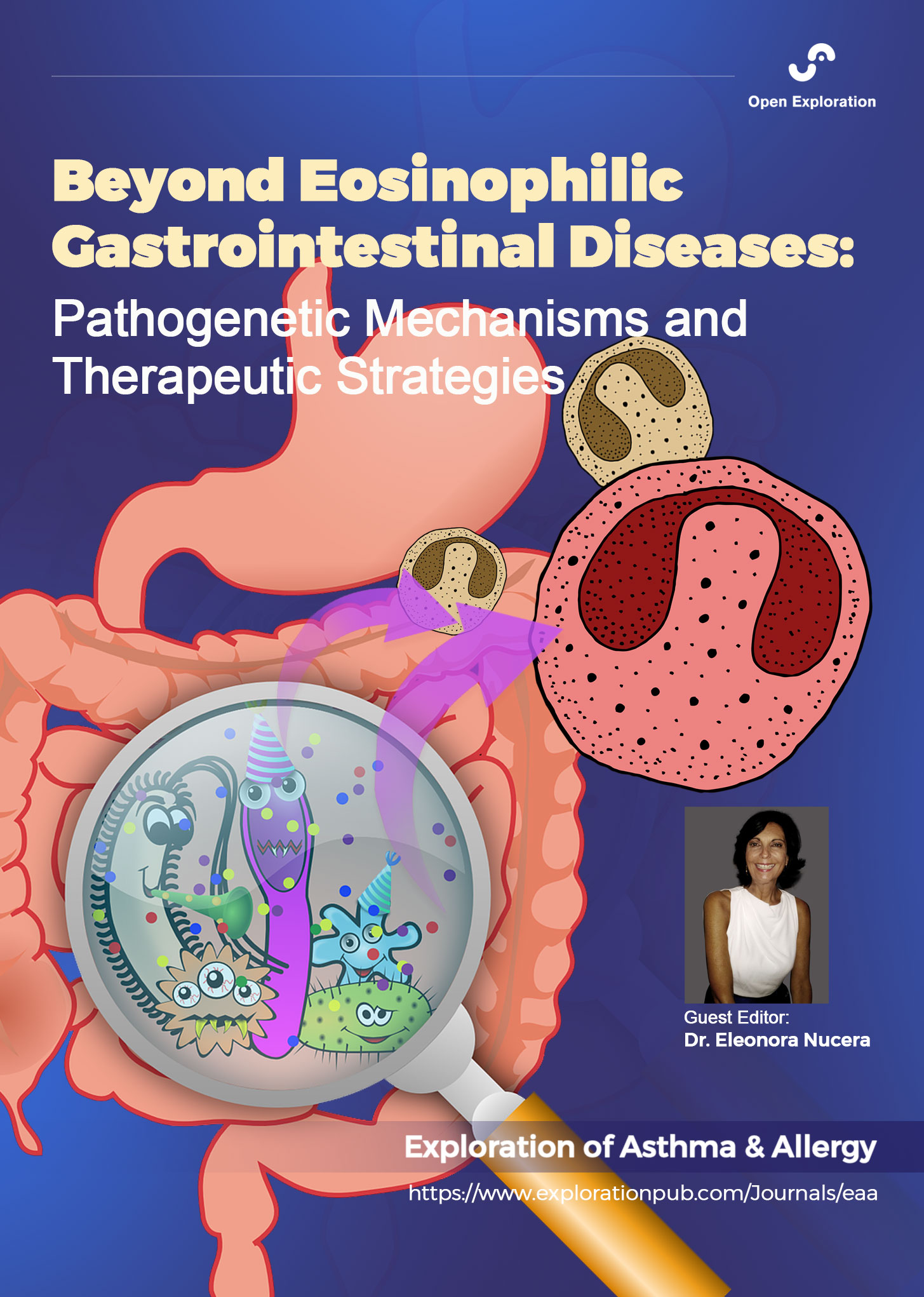
Beyond Eosinophilic Gastrointestinal Diseases: Pathogenetic Mechanisms and Therapeutic Strategies
Guest Editor
Dr. Eleonora Nucera E-Mail
Catholic University of the Sacred Heart, Roma, Italy
Research Keywords: Food allergy, respiratory allergy, latex allergy, insect venom allergy, contact dermatitis, allergens, eosinophilic gastrointestinal diseases, chronic urticaria
About the Special lssue
In recent years, eosinophilic gastrointestinal diseases (EGIDs), such as eosinophilic oesophagitis (EoE), eosinophilic gastritis (EoG), eosinophilic enteritis (EoN), eosinophilic colitis (EoC), and systemic eosinophilic diseases with gastrointestinal involvement, such as hypereosinophilic syndrome (HES) and eosinophilic granulomatosis with polyangiitis (EGPA), have received increasing interest from clinicians. The hallmark of these disorders in an inappropriate immune response, often leading to inflammation and tissue damage in affected organs. While eosinophils typically play a role in the defense against parasites and in allergic reactions, their overactivity or misregulation can contribute to the development of eosinophilic diseases. The exact etiology of these conditions remains elusive, but genetic factors, environmental triggers, T2-immune dysregulation and allergic response certainly play a key role. This has led to a greater understanding of the pathophysiological mechanisms underlying these diseases and the development of targeted therapies; in particular, the advent of biologic drugs capable of interfering with intracellular signalling pathways has significantly altered the course of these diseases, significantly improving the quality of life of patients suffering from these pathologies.
The aim of this special issue is to focus on eosinophilic diseases with gastrointestinal involvement, whether isolated or systemic, with an emphasis on new discoveries in pathophysiology and therapy, highlighting the central role of eosinophils.
Keywords: EoE, EoG, EoN, EoC, HES, EGPA, eosinophilia, biologic